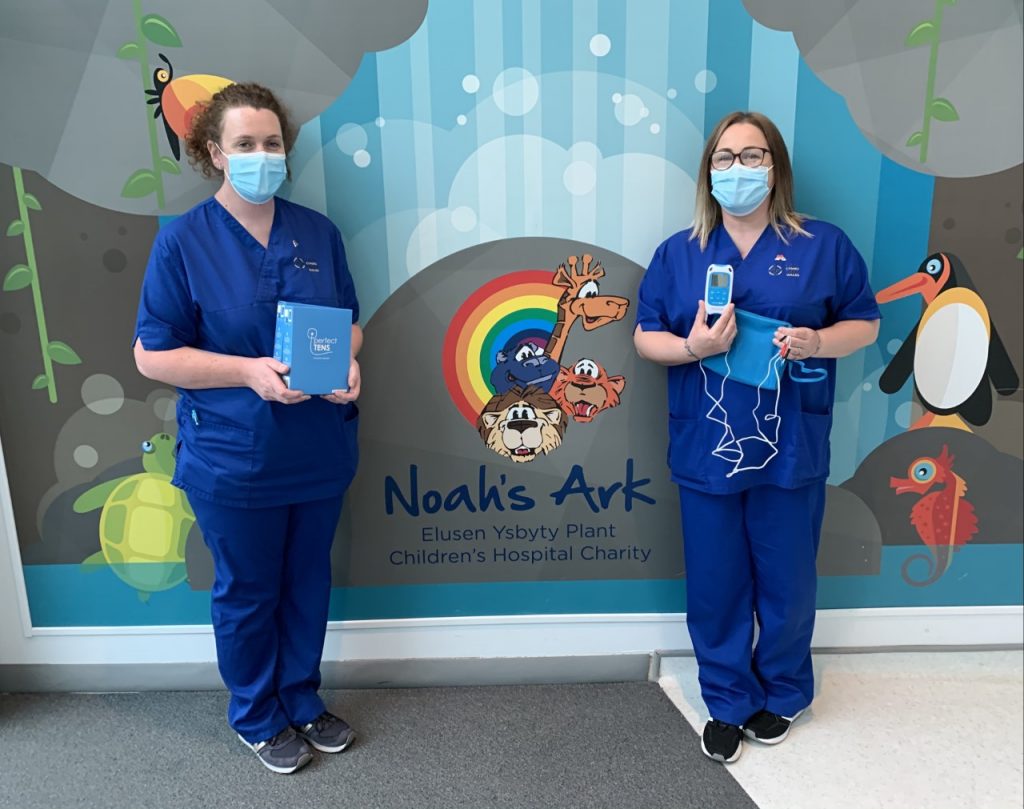TENS machines

Our small grant making programme funded 20 new transcutaneous electrical nerve stimulation (TENS) machines to help children living with bladder conditions.
These are small battery-operated packs connected by wires to sticky pads which are placed on a patient’s back to help stimulate the nerves leading to the bladder. After only a few months of use, the urology team were recording fantastic results.

Karen Knight and her colleague, Nerys, look after children with complex bladder and bowel conditions at the children’s hospital, working as part of the surgical team with urology. The team decided they wanted to try a new treatment called neuromodulation, which helps to stimulate nerves in the back to help improve bladder function without the need for medication. Children take the machines home and use them for an hour a day, every day, for 12 weeks.
Karen says “We see children with bladder urgency, frequency and wetting, and wanted to offer them treatment that was not medication but also not invasive. Some of the medications can have nasty side effects, like dry cracked lips and poor concentration. If patients have these side effects and can’t tolerate them anymore, the tens machines are a great alternative. Parents are also very cautious about medication so tend to ask if there’s anything else they can try. If you’ve got a ten-year-old child who’s been wet all their life and then after this treatment, they’re not wet again, it’s lifechanging. The impact of bladder conditions can be tough for a child. They can’t go to sleepovers or play on trampolines. It can be restrictive.
We were so pleased when the grant was accepted and once we started the treatment, we couldn’t believe how effective it was. It had a 60% success rate so, for those who’d had no response to the medication, it was life changing. It’s lovely to see the look on the children’s faces too. They’re shocked that this simple, non-invasive treatment has been so effective and because they’re so compact, they find them so easy to use. It’s so nice to tell families that we’ve got something they can try other than medication and much of that is thanks to the grant from the Noah’s Ark Charity.”







